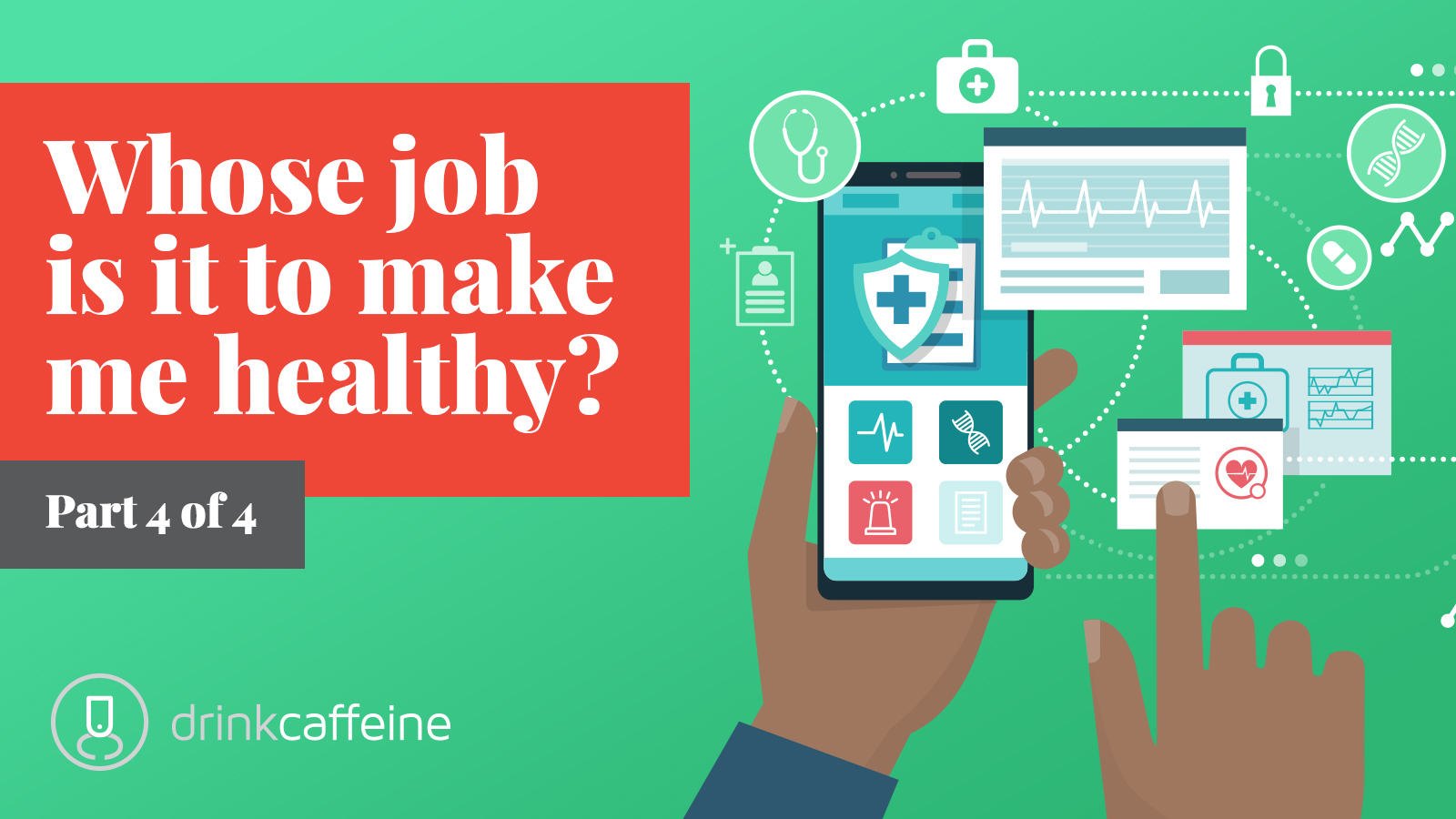Insight 4: Health insurers are perceived as responsible for making sure the right care is received.
A drinkcaffeine study of 300+ consumer healthcare decision makers reveals what people are prepared to believe about healthcare, and how healthcare decision makers can unlock market potential as they pursue the goal of population health.
More than 55% of consumers think their health insurer is responsible for making sure the right care is delivered.
The statement we tested: “If I have a health problem, it’s the responsibility of my health plan/insurance carrier to make sure I receive the right care.”
19.2% Strongly Agree
36.4% Agree
34.1% Disagree
7.3% Strongly Disagree
3.0% “Don’t Know”
For consideration: Segment health insurance value
Medicare for All and movement toward a single-payer system is not going to happen anytime soon.
Employer-sponsored and individual insurance plans will continue to play a pivotal role in healthcare. The question is, in what direction will the health insurance industry pivot?
As recently as 2017, 70% of consumers believed health insurance companies were “largely” or “fully” trustworthy (Statista/Consumer & Business Insights). Insurers should not ignore the goodwill that exists. They should do research that asks and answers questions such as:
- What are the most valuable nonmedical functions a health insurance company performs for its members?
- How do policyholders perceive their health insurer’s purpose, value, and identity?
- What are the areas of “health insurance literacy” that policyholders really need to know about?
Instead of viewing the insurer as the architect and manager of a health network, many consumers think insurers (public and private) are responsible for the delivery of an agreed-upon service: Receiving “the right care.”
To be continued
The steady pressure of consumerism on healthcare is opening opportunities for healthcare decision-makers to redefine responsibilities for individual health.
The competitive advantages will belong to healthcare organizations that meet the patient as a consumer and empower that person’s path to improved health with information, support, and expectations of engagement.
Healthcare decision-makers, it’s your move.
Contact us when you’re ready to use healthcare communications to solve problems.


